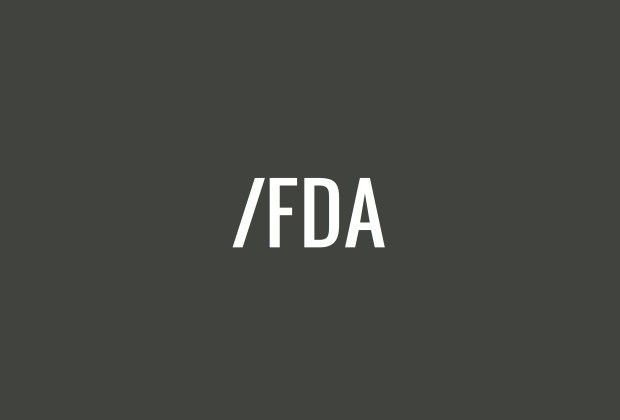The substantial equivalence deadline will not be moving back to August 2021.
A three-judge panel of the U.S. Court of Appeals for the Fourth Circuit unanimously rejected appeals from the vaping industry, the cigar industry and the U.S. Food & Drug Administration (FDA) in an appeal of a 2019 decision that threw out the August 2021 deadline for product approval for deemed products like cigars and e-cigarettes.
HOW WE GOT HERE
The roots of the case started in 2017 when FDA announced that it would delay the deadlines for substantial equivalence and PMTA, the pathways for which many newly deemed tobacco products would get approval to remain on the market from FDA. Those deadlines were set for August 2018, but FDA opted to delay them for three years.
A year later, a group of Maryland-based pediatricians and anti-tobacco groups filed suit in federal court. In the case—American Academy of Pediatrics et al. v. United States Food and Drug Administration et al.—the plaintiffs sued FDA and claimed that the agency had no authority to create delays in deadlines like the three-year delay from 2017. Notably, many of the plaintiffs that sued FDA in this case tried to intervene in the main cigar industry lawsuit in Washington D.C., but were told they did not have standing.
Last May, Judge Paul W. Grimm ruled against FDA and agreed with nearly all of the plaintiff’s claims. His ruling—which affects all deemed tobacco products—made nearly no mention of cigars and instead focused exclusively on e-cigarettes and vaping products. He announced that he was throwing out the August 2021 deadline and then asked the two sides to make recommendations about an alternative deadline.
The plaintiffs asked for it to be due in four months, until October 2019, while FDA asked for a 10-month delay. Ultimately, Grimm sided with FDA and created a new deadline for substantial equivalence for May 12, 2020.
That deadline was recently delayed until Sept. 9, 2020 due to the coronavirus COVID-19 pandemic. Given this ruling, cigar companies should expect this to be the deadline they will have to adhere to.
THE APPEALS
A number of parties appealed Grimm’s decisions over various grounds. The vapor industry appealed to a different federal court and quickly lost. The cigar industry appealed to U.S. District Court Judge Amit P. Mehta—the judge who has overseen the main cigar industry-FDA lawsuit—and lost. And FDA itself appealed the case.
Ultimately, as was clear with the cigar industry’s initial appeal, the issue likely needed to go to an actual appeals court and not simply to a different federal court, where one judge would be asked to overrule the work of his or her colleague.
That venue was the U.S. Court of Appeals for the Fourth Circuit in Richmond, Va. and the case was argued last October.
A RESOUNDING DEFEAT
In a rather short document, the court unanimously rejected the appeals of both the vaping industry and the cigar industry. It also indicated that FDA, who was appealing Grimm’s decision, had requested that its appeal be dismissed if both the others were rejected.
The court’s position towards the cigar industry is that it should have acted earlier in the Maryland case and that it was unfair to allow the cigar industry to appeal the case so late in the process. For context, the cigar industry stayed out of the Maryland case until after Grimm ruled against FDA and it became clear there would be problems for the cigar industry.
Yet, the Cigar Appellants did not move to intervene for another six months. Instead, they filed a motion in the pending District of Columbia case seeking a declaration from that court that the deadlines put in place by the district court here did not apply to cigar products. See Cigar Ass’n of Am. v. FDA, Mem. in Supp. of Pls.’ Motion for a Decl., No. 16-1460, ECF No. 136-1. The District of Columbia court rightly rejected the Cigar Appellants’ attempted maneuvering. See Cig Ass’n of Am. v. FDA, 411 F. Supp. 3d 1, 4 (D.D.C. 2019). Therefore, against this backdrop, it appears the Cigar Appellants “gambled and lost in the execution of [their] litigation strategy,” which “engenders little sympathy.” Alt, 758 F.3d at 591. We thus decline to disturb the district court’s ruling, which was well within its discretion.
It also upheld a previous district court ruling on the matter, quoting that court:
The litigation in the District of Columbia preceded this case and they could have sought to intervene months earlier. And, unlike the Vapor Associations that could not previously show harm to their interests, the Cigar Associations have been aware for months that this litigation challenged the deadlines that they believed they had negotiated to extend. Yet they chose not to seek leave to intervene previously, waiting instead to see if the case would survive Defendants’ motion to dismiss and, when it did, to see what the remedy would be. “Such deliberate forbearance understandably engenders little sympathy.”
As for the vaping industry, the court ruled that its appeal was based on 2017 guidance from FDA, a formal roadmap of how FDA plans to enforce regulations. On Jan. 2, 2020, FDA introduced new guidance for tobacco regulations, almost exclusively centered around vaping and e-cigarette products.
The court ruled that the 2020 guidance made the 2017 guidance moot and therefore the vaping industry’s appeal moot.
In both instances, the court didn’t rule on the merits of the claims, rather, it found reasons to reject both parties’ arguments on procedural grounds.


